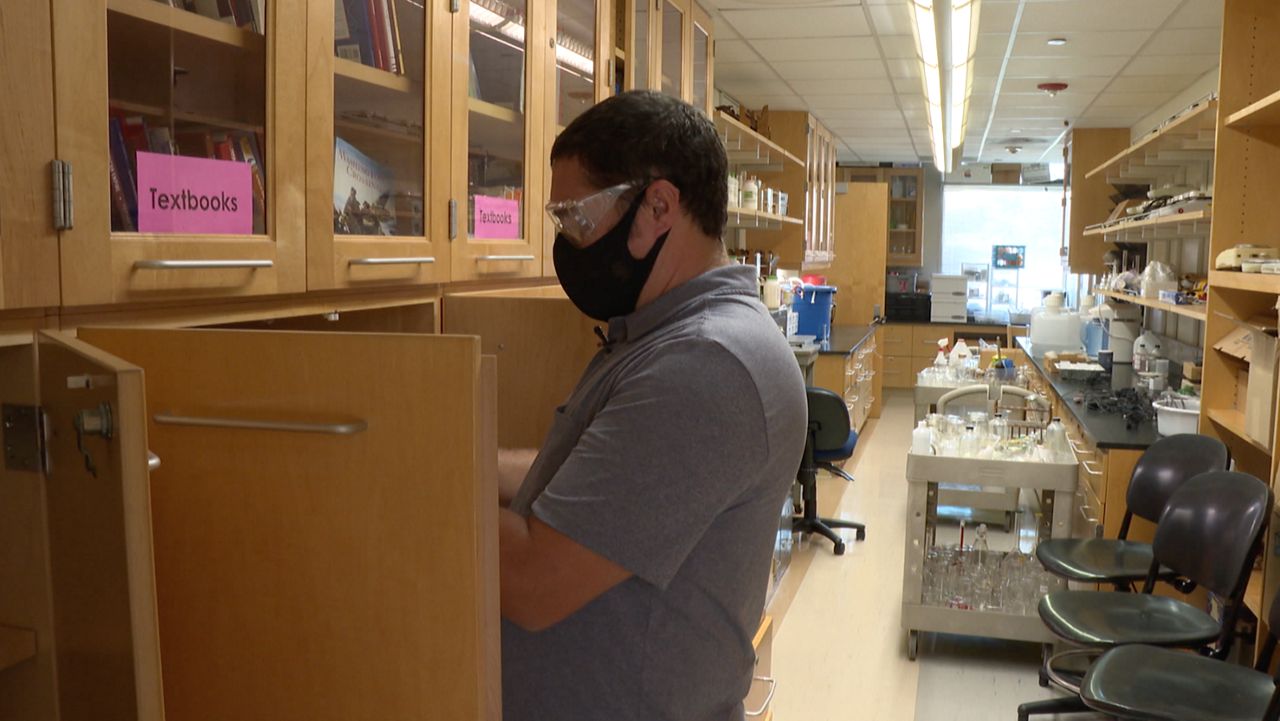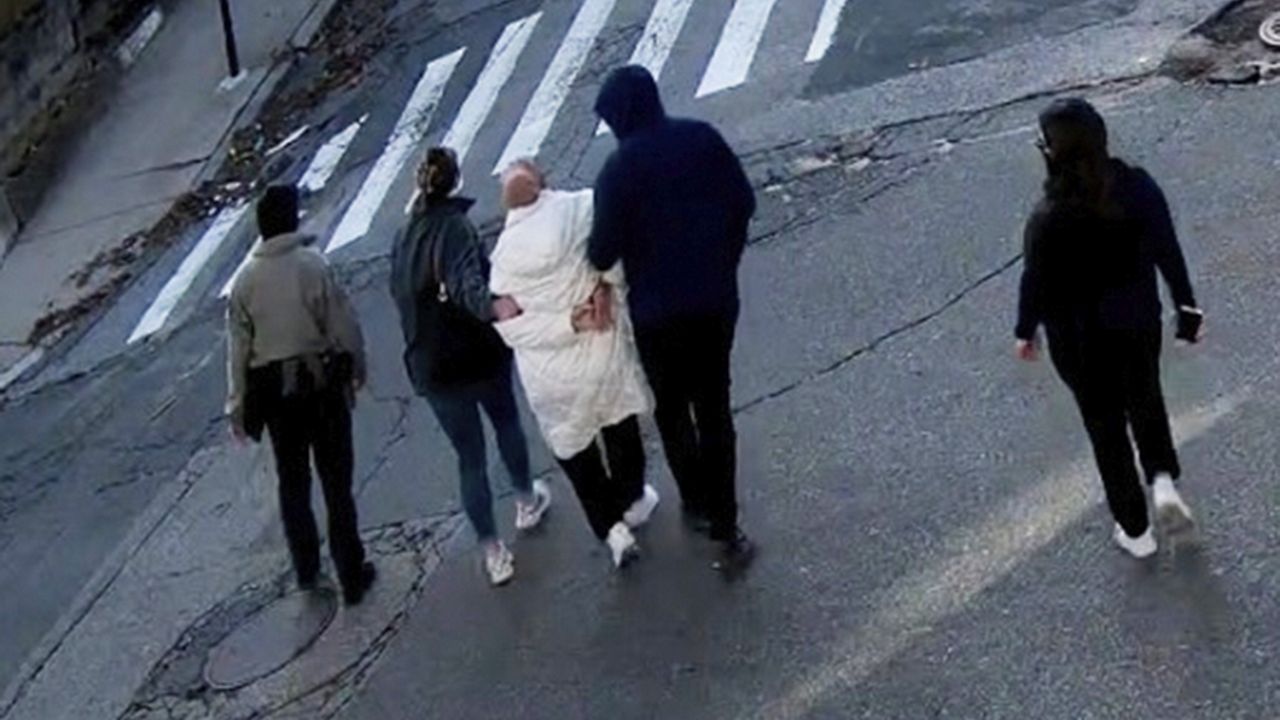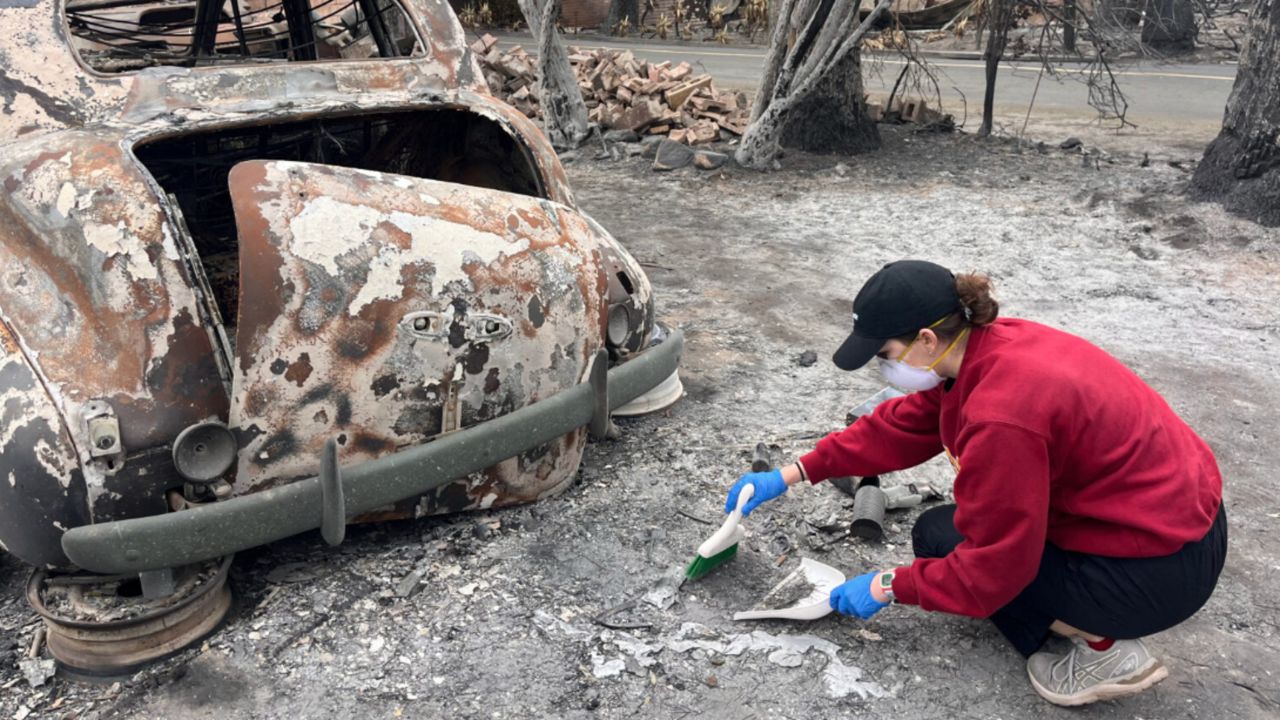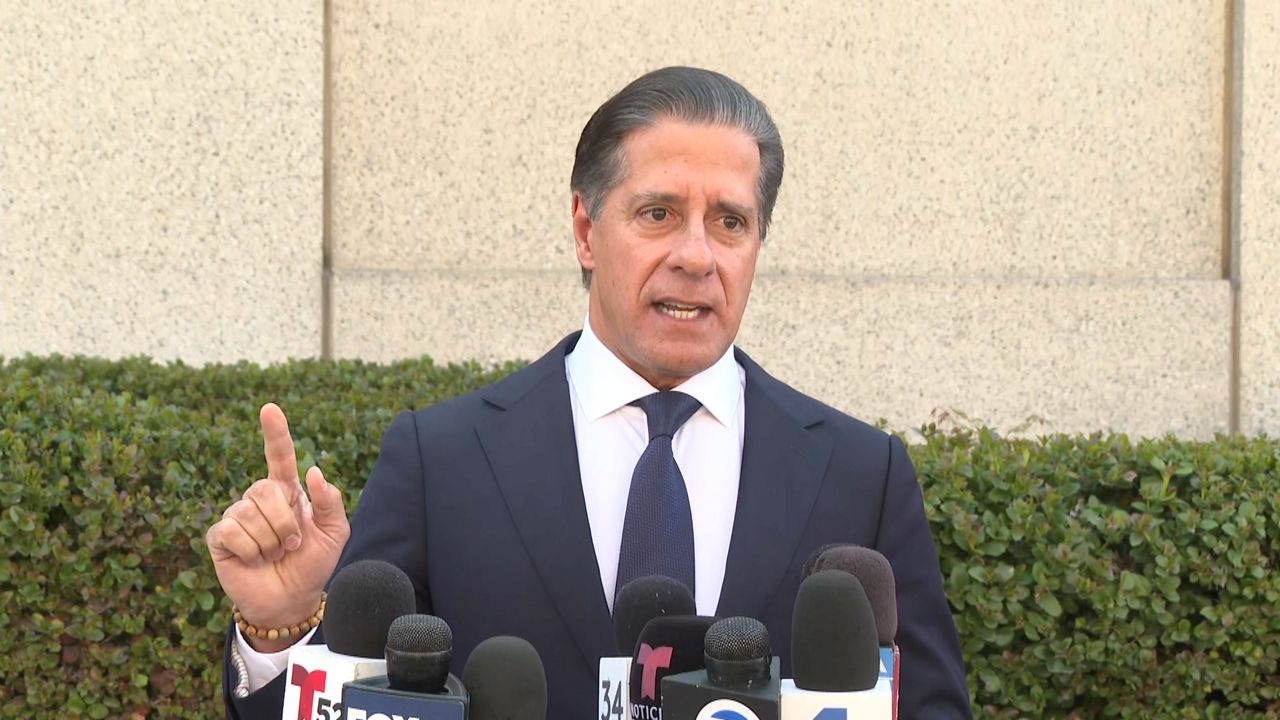EL SEGUNDO, Calif. — This summer, Gov. Gavin Newsom signed the TK-12 Education Trailer Bill. AB 130, as it's also known, makes it a little easier to become a teacher in California.
After the pain of remote learning, it's almost a relief for chemistry teacher Fotis Davlantis to be back cleaning beakers and test tubes.
"I'm very excited to start planning my labs and start ordering lab equipment again," Davlantis said.
It's been hectic preparing for the fall semester. Before the first day of school, Davlantis and other El Segundo High School teachers got together to help principal Dr. Melissa Gooden make some new hires.
Statewide there's a teacher shortage. That is the main impetus for a new workaround for two exams almost every teacher takes. The California Basic Skills Test, or CBEST, is usually taken before starting a teacher preparation program. The California Subject Matter Exams for Teachers, or CSET, tests proficiency in the subject they will teach.
Now, good grades in relevant coursework will be enough, so hopefuls don't need to spend time and money on either of these exams.
Gooden said she isn't worried about these changes.
"Never once when I was hiring did I ever look at somebody's test scores," Gooden said.
So far, they've hired three teachers to come to El Segundo High School, but that might not be enough. Usually, there are a few extra classes the full-timers have to stretch and cover, often giving up breaks and planning periods to do so.
Teachers with more than one specialty—especially in math and science—are valuable in times like these. Gooden plans to ask her employees if they're interested and qualified to teach additional subject areas.
"I just see these changes in the credentialing requirements really making it so that schools will have a little bit more flexibility," Gooden said.
Even though he's been teaching chemistry for almost 20 years, Davlantis has a degree in biology. If there's a need, he might be branching out very soon, which is not too shocking for someone who handles change and experimentation every day.
"The students really, I think, fall in love with science with those labs," Davlantis said.
Both exams, the CBEST and CSET, have a first-time pass rate of less than 70%. For the CBEST alone, candidates must pay a $102 test fee and may be required to pay late registration or emergency registration fees.










